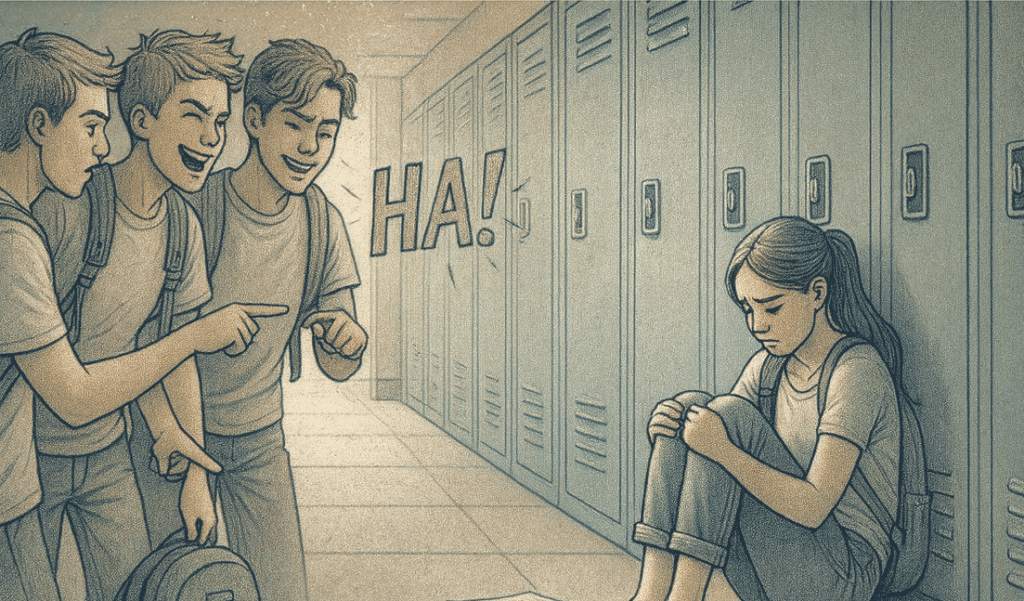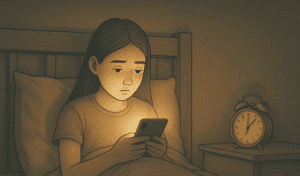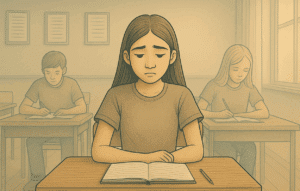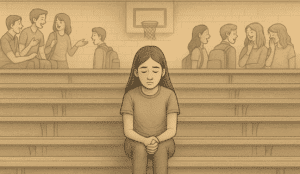Key Takeaways
- Start by recognizing the signs, since teens often hide bullying experiences; changes in mood, grades, social behavior, or online activity can be strong indicators.
- Create safe spaces for open communication, letting your teen share at their own pace without judgment, minimizing, or rushing into solutions.
- Document and involve the school, keeping records of incidents and working with educators as allies to address the problem effectively.
- Build resilience and coping skills, encouraging healthy stress management, role-playing responses, and developing strategies that empower teens instead of leaving them feeling powerless.
- Mission Prep Healthcare provides specialized therapeutic support for teens dealing with bullying trauma, offering family-centered care that builds emotional resilience and healthy coping strategies without relying on medication.
Understanding the Hidden Impact of Bullying
Bullying doesn’t always leave visible marks, but its effects can linger for years. For teens, it shakes their sense of safety and belonging right when they’re still figuring out who they are. The impact shows up in daily life, such as slipping grades, lost interest in hobbies, restless nights, or sudden irritability at home.
Because the teenage brain is still developing, they feel the weight of bullying more intensely. The good news is that this same stage of growth also makes them incredibly resilient. With the right support, healing is possible, which is why catching the signs early matters so much.
| Mission Prep Healthcare: Adolescent Mental Health Care Mission Prep Healthcare specializes in mental health treatment for teens aged 12-17, offering residential and outpatient programs for anxiety, depression, trauma, and mood disorders. Our therapies include CBT, DBT, EMDR, and TMS, tailored to each adolescent’s needs. With a structured, supportive environment, we integrate academic support and family involvement to promote lasting recovery. Our goal is to help teens build resilience and regain confidence in their future. Start your recovery journey with Mission Prep Healthcare today! |
Recognizing the Signs Your Teen is Being Bullied

Teens often internalize bullying experiences, carrying emotional weight that affects their daily life, relationships, and sense of self-worth in ways that aren’t immediately obvious to parents.
Teens rarely come out and say they’re being bullied, so the clues often hide in changes to behavior, mood, or health. Physical signs like unexplained injuries, damaged belongings, or frequent complaints of feeling sick can point to trouble. Emotional stress may show up as restless sleep, changes in eating habits, or constant excuses to avoid school.
Academics can also take a hit. A once-engaged student may start skipping classes, avoiding certain hallways, or watching their grades drop. Socially, they might pull back from friends, stop joining activities they once loved, or spend more time alone in their room.
Even technology can tell a story. If your teen suddenly avoids social media, hides their screen, or seems upset after being online, cyberbullying could be at play. Spotting these shifts early gives you the chance to step in and offer support before things spiral.
Types of Bullying Teens Face Today
Traditional and Physical Bullying
Physical bullying includes hitting, pushing, or damaging someone’s property. While this type of bullying is often easier to identify, it can escalate quickly and leave teens feeling powerless and unsafe even in places that should protect them.
Verbal and Emotional Bullying
Words can wound deeply, especially during the teenage years when identity and self-worth are still forming. Name-calling, threats, and public humiliation chip away at confidence and can create lasting emotional scars that affect relationships and self-image for years.
Cyberbullying and Digital Harassment
Online bullying follows teens everywhere through their devices. Mean comments, embarrassing photos shared without permission, or exclusion from online groups can feel inescapable. The anonymous nature of some digital platforms can make cyberbullying particularly cruel and persistent.
Social Exclusion and Relational Bullying
Sometimes the cruelest bullying involves being left out, ignored, or having rumors spread. This type of bullying can be subtle and hard for adults to detect, but it’s devastating for teens who desperately want to belong and be accepted by their peers.
How Parents Can Support a Bullied Teen
Creating a Safe Space for Open Communication
The first step in helping a bullied teen is getting them to open up about their experience. This happens best in comfortable, non-threatening moments rather than formal sit-down conversations. Car rides, walks, or helping with everyday tasks can create natural opportunities for teens to share what’s happening.
Listen without immediately jumping to solutions or getting angry about what you’re hearing. Teens need to feel heard and believed before they’re ready to work on fixing the problem. Ask open-ended questions that show you care about their feelings, not just the facts of what happened.
Avoid minimizing their experience or suggesting they just ignore the bullying. What feels small to an adult can feel enormous to a teenager. Validate their emotions while helping them understand that being bullied isn’t their fault and that there are ways to make it better.

The best conversations about bullying happen during comfortable, everyday moments where teens feel safe to share without pressure or judgment from parents.
Documenting Incidents and Evidence
Keep detailed records of bullying incidents, including dates, times, locations, and what happened. Take photos of any physical evidence like damaged belongings or injuries. Save screenshots of cyberbullying messages or posts before they can be deleted.
This documentation serves multiple purposes. It helps you track patterns and escalation, provides concrete evidence when talking to school officials, and shows your teen that you’re taking their experience seriously. It also teaches them valuable self-advocacy skills they’ll need throughout life.
Working Collaboratively with Schools
Approach school administrators as partners in solving the problem, not as adversaries. Most educators want to help but need specific information about what’s happening and when. Come prepared with your documentation and focus on finding solutions that work for everyone involved.
Understand your school’s anti-bullying policies and procedures. Ask about what steps will be taken and what timeline to expect. Follow up regularly to ensure promised actions are happening and to provide updates on your teen’s experience.
Building Emotional Resilience and Coping Skills
Help your teen develop healthy ways to manage the stress and emotions that come with being bullied. This might include deep breathing techniques, physical exercise, creative outlets, or talking to trusted friends and family members.
Role-play different scenarios so your teen feels more prepared to handle future situations. Practice confident body language, assertive responses, and when to seek help from adults. Building these skills helps teens feel more empowered and less like victims.
What Schools Can Do to Create Safer Environments
Schools play a crucial role in preventing and addressing bullying. Effective programs focus on creating positive school climates where respect and kindness are valued and rewarded. This includes training all staff members to recognize and respond appropriately to bullying situations.
Clear consequences for bullying behavior help, but they work best when combined with education about empathy and healthy relationship skills. Teaching all students how to be upstanders rather than bystanders creates a culture where bullying becomes socially unacceptable.
Regular check-ins with students who have been involved in bullying situations, either as targets or perpetrators, help prevent future incidents and ensure that interventions are working effectively.
Why Mission Prep is Your Partner for Teen Emotional Wellness

Mission Prep’s therapeutic spaces provide the safety and comfort teens need to process bullying experiences and build emotional resilience with professional support.
When bullying has taken a serious toll on your teen’s emotional well-being, professional help can make all the difference. Mission Prep Healthcare understands that bullying trauma affects the whole family, not just the teen who experienced it directly.
Our comprehensive programs for adolescents aged 12 to 17 address the complex emotional impacts of bullying through residential, outpatient, and telehealth services. We focus on building emotional resilience, developing healthy coping strategies, and restoring your teen’s sense of self-worth without relying on medication as the primary solution.
What makes our approach unique is how we involve families in the healing process. Bullying affects family dynamics, and recovery works best when everyone understands how to support their teen’s emotional growth. Our licensed therapists provide families with practical tools and strategies that continue working long after formal treatment ends.
We create a safe environment where teens can process their experiences, learn new social skills, and practice healthy responses to conflict. Our goal is to help your teen not just recover from bullying, but to develop the emotional strength and confidence that will serve them throughout their lives.
Every aspect of our program prepares teens for real-world challenges while building their capacity for healthy relationships and emotional resilience. When you choose Mission Prep, you’re partnering with a team that understands the lasting impact of bullying and knows how to help families heal together.
Frequently Asked Questions (FAQ)
Should I contact the other child’s parents directly?
It’s usually better to work through school officials first. Direct parent-to-parent contact can sometimes escalate conflicts or put your teen in a more difficult position. If you do decide to reach out, keep the conversation focused on finding solutions rather than assigning blame.
How do I know if my teen needs professional help for bullying trauma?
If your teen shows lasting changes in mood, behavior, or academic performance that don’t improve with time and family support, professional help can be beneficial. Signs like persistent anxiety, depression, sleep problems, or talk of self-harm indicate that additional support is needed.
What if the school isn’t taking the bullying seriously?
Document all your communications with school officials and escalate your concerns up the chain of command if necessary. Most districts have procedures for appealing decisions or involving higher-level administrators when initial responses are inadequate.
How can I help my teen who doesn’t want to “snitch” on bullies?
Help them understand the difference between tattling about minor issues and reporting behavior that’s harmful or dangerous. Emphasize that seeking help for bullying shows strength and courage, not weakness. Sometimes, peer mediation or anonymous reporting options feel more comfortable for reluctant teens.
What mental health services does Mission Prep offer for bullying-related trauma?
Mission Prep provides residential, outpatient, and telehealth programs specifically designed for adolescents dealing with bullying trauma, anxiety, depression, and social difficulties. Our family-focused approach includes therapy, coping skills training, and long-term emotional resilience building through personalized care plans.


















